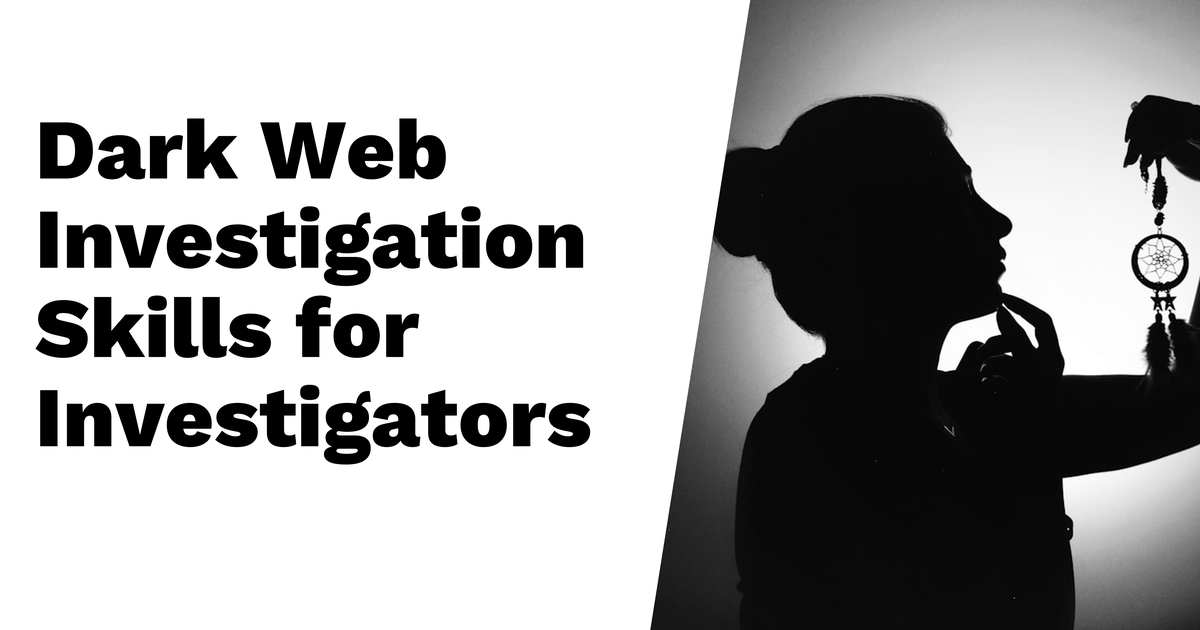Investigating the dark web presents unique challenges that require detectives to develop a diverse set of skills. Firstly, understanding the dark web itself is vital since it’s not indexed by standard search engines and often involves illicit activities like drug trafficking or counterfeit goods. Investigators need technical proficiency to navigate tools such as VPNs and proxy servers safely. It’s also crucial for them to maintain anonymity while exploring this shadowy realm using resources like Tor and TAILS. Moreover, familiarity with digital forensics, especially metadata analysis, helps in tracing illegal actions. Many training courses exist, such as those offered by OSINT Academy and Spyder Forensics, providing knowledge on navigating dark web marketplaces and understanding cryptocurrency dynamics vital for successful investigations.
Table of Contents
- Understanding the Dark Web
- Essential Skills for Investigators
- Technical Proficiency in Investigations
- Anonymity Techniques for Safe Navigation
- Digital Forensics in Dark Web Cases
- Cryptocurrency Knowledge for Tracking
- Available Training Courses for Investigators
- Best Practices for Dark Web Investigations
- Creating a Non-Attributable Persona
- Importance of Data Security in Investigations
- Legal Awareness in Dark Web Investigations
- Challenges in Dark Web Investigations
- Frequently Asked Questions
1. Understanding the Dark Web

The dark web is a specific part of the internet that is often confused with the deep web, but they are not the same. The dark web requires special software, like Tor, to access its content, which is not indexed by standard search engines. This hidden section of the internet serves various purposes. While some users seek privacy and anonymity, it is also a marketplace for illegal activities, such as drug trafficking and the sale of counterfeit goods. Law enforcement agencies keep a close watch on the dark web to gather intelligence and combat criminal enterprises. For navigating this complex space, specialized search engines, such as Grams and Not Evil, help users find specific content among the vast amount of information available. The dark web is filled with forums and marketplaces where illegal goods and services are traded, making it crucial for investigators to understand its structure. Many sites require registration or an invitation, adding another layer of complexity. User anonymity is a key feature, supported by encryption and routing protocols, which makes understanding these technologies essential for anyone looking to explore or investigate this hidden realm.
2. Essential Skills for Investigators
Investigators delving into the dark web need a specific set of skills to conduct effective inquiries. Firstly, they must be adept at using various digital tools to analyze and interpret data, which is often complex and layered. This technical proficiency includes understanding internet technologies like IP addresses and proxy servers, as well as command-line tools that can aid in investigations.
Identifying and tracing online personas is another crucial skill. Criminals on the dark web often operate under layers of anonymity, making it essential for investigators to track these identities through digital footprints. Expertise in social engineering can also prove beneficial, as it allows investigators to gather information through strategic interactions with suspects or informants.
Familiarity with the legal frameworks surrounding cyber investigations is vital. Investigators need to navigate laws regarding evidence collection and ensure that their findings can be used in court without compromising the integrity of the investigations. Strong problem-solving skills are essential to navigate the complexities that arise in cases, especially when faced with misleading information or intricate networks.
Moreover, effective communication skills are necessary for accurately reporting findings and collaborating with other professionals. Investigators should be able to articulate their methods and conclusions clearly to both technical and non-technical audiences. Staying updated on emerging technologies and trends in cybercrime is equally important, as the landscape is continually evolving.
Finally, the ability to work under pressure while maintaining attention to detail is crucial. Dark web investigations can often lead to high-stress situations, requiring a focused mindset. Networking with other professionals in the field can provide additional insights and support, enhancing the investigator’s overall effectiveness. Understanding psychological tactics can also aid in predicting criminal behavior, allowing investigators to anticipate actions and strategize accordingly.
- Investigators should know how to use digital tools to analyze and interpret data from the dark web.
- They need expertise in identifying and tracing online personas.
- Familiarity with legal frameworks surrounding cyber investigations is crucial.
- Problem-solving skills are necessary to navigate complex cases and data.
- Knowledge of social engineering tactics can help in gathering information.
- Effective communication skills are important for reporting findings and collaborating with teams.
- Investigators must stay updated on emerging technologies and trends in cybercrime.
- Ability to work under pressure while maintaining attention to detail is essential.
- Networking with other professionals in the field can provide valuable insights and support.
- Understanding psychological tactics can aid in predicting criminal behavior.
3. Technical Proficiency in Investigations
Technical proficiency is essential for investigators diving into the dark web. Mastering various operating systems, particularly Linux, can significantly enhance an investigator’s capabilities, as many tools and applications used for investigations are optimized for this environment. Using virtual machines is also crucial; they provide a safe space to conduct investigations without exposing the main operating system to potential threats.
Familiarity with programming languages like Python is valuable for data analysis, allowing investigators to automate tasks and analyze large datasets effectively. Understanding network protocols and packet analysis enables investigators to track online activities and identify malicious behaviors. Technological literacy is vital for using various investigative tools effectively, from web scrapers to data visualization software.
Being adept at forensic software for data recovery and analysis is equally important, as it helps in retrieving and examining data that may be crucial in investigations. Knowledge of cybersecurity practices ensures that investigation data remains protected, preventing leaks that could compromise cases. Investigators should also know how to set up and manage secure servers for data storage, safeguarding sensitive information collected during their work.
Moreover, using analytical tools can help visualize complex data relationships, making it easier to understand connections between individuals and activities on the dark web. Proficiency in encrypted communication tools is necessary for secure information exchange, protecting the integrity of discussions and findings from potential interception.
4. Anonymity Techniques for Safe Navigation
Navigating the dark web demands a strong focus on anonymity to protect personal information and ensure safety. A common approach is to use a Virtual Private Network (VPN) alongside the Tor browser, providing an extra layer of encryption and hiding your IP address. Investing in secure hardware is another effective method; using dedicated devices solely for dark web activities can significantly reduce the risk of exposure. When creating usernames or profiles, it’s essential to avoid personal information. This helps in maintaining a non-attributable identity. For registration on various sites, using disposable email addresses can prevent tracking and minimize the chances of your real identity being revealed.
Regularly changing your online persona can also lower the risk of being identified. Awareness of phishing tactics is crucial; always be cautious of suspicious links that could lead to malware or data theft. Utilizing secure browsers and privacy-enhancing plugins can further safeguard your activities. Implementing two-factor authentication wherever possible adds another layer of security that is hard for attackers to bypass. Education on common traps and scams within the dark web environment is vital, as understanding these risks helps avoid pitfalls. Lastly, maintaining good digital hygiene, such as regularly clearing caches and using strong, secure passwords, is vital to keeping your activities private.
5. Digital Forensics in Dark Web Cases
Digital forensics plays a crucial role in investigations related to the dark web. It involves the recovery and analysis of data from electronic devices that may be linked to illicit activities. Investigators must be adept at using specialized forensic tools to extract data from encrypted communications, as many dark web transactions are designed to be hidden from plain sight. Additionally, understanding how to analyze blockchain transactions is vital, as this knowledge allows investigators to trace the flow of cryptocurrency, which is often used for illegal purchases.
Collaboration with cybersecurity experts can greatly enhance the effectiveness of forensic investigations. These professionals provide insights into the latest threats and methods used by criminals online. Furthermore, it is essential for investigators to know how to handle and preserve digital evidence properly to maintain its integrity, as any misstep could compromise the validity of the evidence in court.
Familiarity with the legal aspects surrounding digital evidence collection is also important, as it helps prevent challenges during legal proceedings. Investigators should be aware of data privacy laws that may affect their forensic investigations, ensuring compliance while working on sensitive cases. Conducting thorough threat assessments is another important aspect, as it allows investigators to identify potential risks and develop strategies to mitigate them during the investigation process.
Applying various forensic analysis techniques helps uncover patterns of criminal behavior, which can lead to more effective strategies for combating dark web activities. Staying updated on new forensic technologies and methodologies is necessary, as the digital landscape is constantly evolving, and so are the tactics employed by those operating in the shadows of the internet.
6. Cryptocurrency Knowledge for Tracking
Investigators must grasp the fundamentals of how cryptocurrencies operate, especially in the context of dark web transactions. A strong understanding of blockchain technology is vital, as it allows investigators to trace cryptocurrency transactions effectively. Familiarity with different types of cryptocurrency wallets and exchanges aids in tracking the flow of funds, which is often convoluted in illicit activities. It’s important to distinguish between anonymous and pseudonymous cryptocurrencies, as this knowledge can significantly impact the investigation’s direction. Utilizing blockchain analysis tools can reveal transaction histories and connections between various entities. Furthermore, investigators need to stay informed about the legal implications surrounding cryptocurrency tracking, which can vary by jurisdiction. Being aware of emerging trends in cryptocurrency regulation can also shape investigative strategies. Recognizing the signs of money laundering within cryptocurrency transactions is essential, as this can often lead to uncovering larger criminal networks. Collaborating with financial experts may also be necessary for detailed analysis, especially when understanding how to convert cryptocurrencies into fiat money to track illicit financial flows.
7. Available Training Courses for Investigators
Training courses for investigators delving into the dark web are essential for building the necessary skills and knowledge. These programs typically cover the technical aspects of accessing dark web marketplaces and the tools required for effective navigation. Many courses include practical scenarios, enabling investigators to gain real-world experience in a controlled environment. For instance, institutions like OSINT Academy and Spyder Forensics offer extensive courses that teach participants how to use anonymous browsers like Tor and navigate the complexities of the dark net.
Moreover, some programs focus on specific tools and techniques, such as cryptocurrency tracking and digital forensics, which are crucial for understanding illicit activities. Legal challenges faced during investigations are also addressed, ensuring that investigators are aware of the implications of their work. Networking opportunities with other professionals are an added benefit, fostering connections that can be valuable in future investigations.
Continuing education is vital in this rapidly changing digital landscape. Many courses provide certification upon completion, enhancing the professional credibility of investigators. Additionally, hands-on workshops often included in these programs allow participants to practice their skills and learn from case studies of successful dark web investigations. To supplement formal training, online resources and communities are available to help investigators keep their skills sharp and stay updated with the latest trends and challenges.
| Course Provider | Course Focus | Key Features |
|---|---|---|
| OSINT Academy | Dark Web Investigations | Structure of dark web, navigation, evidence collection, anonymity preservation |
| Spyder Forensics | Dark Web Investigator Course | Practical examples, using Tor, cryptocurrency tracking, legal aspects |
| CyberFox Train | Dark Web Investigation Training | Accessing dark web safely, cryptocurrency dynamics, Tor technical workings |
| NICCS – CISA | Crypto Investigator Module 4: The Dark Web | Dark web marketplaces, cryptocurrencies, translating elements into physical evidence |
8. Best Practices for Dark Web Investigations
Regularly reviewing and updating investigation protocols can significantly enhance the effectiveness of dark web investigations. Keeping thorough documentation of all steps taken ensures transparency and accountability, which is crucial when presenting findings to law enforcement or other stakeholders. Sharing insights and discoveries with law enforcement can aid in broader investigations, enabling a more comprehensive approach to tackling illegal activities. A collaborative approach among investigators fosters the exchange of ideas and strategies, often yielding better results than isolated efforts.
Employing a systematic method for data collection and analysis helps organize findings clearly, making it easier to draw connections and conclusions. Creating detailed reports for each investigation not only serves future reference but also aids in tracking the evolution of ongoing cases. Maintaining ethical standards throughout the investigative process builds trust within the community, encouraging cooperation among peers. Additionally, utilizing feedback from colleagues can refine investigative techniques and improve overall strategies. Implementing a review process for completed investigations allows for the identification of areas needing improvement, ensuring that lessons learned are applied to future work. Lastly, keeping meticulous records of sources and data used is critical for validating findings and supporting the integrity of the investigation.
9. Creating a Non-Attributable Persona
Creating a non-attributable persona is essential for investigators operating in the dark web. The first step is to ensure that the persona does not link back to the investigator’s real identity. This can be achieved by using unique usernames and email addresses that don’t reveal personal information. During investigations, it’s crucial to avoid sharing any identifiable details, as this protects the investigator’s identity from potential threats or exposure.
A well-crafted persona should blend in with typical users on the dark web, which helps reduce suspicion. For example, using common interests or participating in regular discussions can make the persona seem more authentic. Additionally, employing secure and private internet connections, such as VPNs and Tor, is vital for maintaining anonymity while browsing these hidden networks.
Regularly updating the persona’s information also contributes to staying unpredictable, making it harder for anyone to trace back to the investigator. Various online tools can enhance privacy, such as browser extensions that block trackers or encrypted communication apps. Being mindful of the digital footprint left behind is necessary, as even minor traces can compromise anonymity.
Monitoring the persona’s activities ensures that no personal information is inadvertently exposed. Practicing good operational security is key; this means being cautious and strategic about how and where the persona is used. By adhering to these guidelines, investigators can operate more safely and effectively in the dark web’s complex environment.
10. Importance of Data Security in Investigations
Data security is a critical aspect of any investigation, especially in the sensitive realm of dark web investigations. Implementing strong encryption for stored data is essential, as it protects sensitive information from unauthorized access. Regularly updating software and systems can help prevent security breaches, ensuring that investigators are not vulnerable to cyber threats. Using secure methods for data transmission, such as encrypted channels, maintains confidentiality during the sharing of sensitive findings.
Conducting regular security audits is necessary to identify vulnerabilities in investigative practices. This proactive approach helps in fortifying defenses against potential attacks. Training investigators on data security protocols is equally important, as it equips them with the knowledge to protect the information they handle. Utilizing secure cloud storage for data access and backup enhances data security, providing a reliable solution for safeguarding evidence.
Creating access controls for sensitive information limits exposure to unauthorized individuals, reducing the risk of leaks. Additionally, monitoring for unusual activity in data access logs can help detect potential breaches early. Having a response plan in place for data breaches or leaks is crucial, ensuring that the team can react quickly and effectively in such situations. Finally, educating team members about phishing and social engineering tactics enhances overall security, making it harder for malicious actors to exploit weaknesses.
11. Legal Awareness in Dark Web Investigations
Investigators working in the dark web must have a firm grasp of relevant laws that govern cybercrime and digital evidence. This includes understanding local, national, and international regulations, as laws can vary significantly across jurisdictions. For instance, privacy laws like the General Data Protection Regulation (GDPR) can impact how user data is collected and handled, making it essential for investigators to stay compliant.
Additionally, knowing how digital evidence from the dark web can be used in court is crucial. Investigators need to be familiar with the concepts of chain of custody and evidence preservation to ensure that any collected data holds up under legal scrutiny. When it comes to accessing dark web content, understanding the process of obtaining search warrants is vital, as jurisdictional complexities can complicate this task.
Jurisdictional challenges are particularly pronounced in dark web investigations due to the global nature of online activities, which can create hurdles in legal processes and enforcement. Investigators must also be aware of potential legal liability, such as risks of entrapment or unauthorized access, which could lead to legal repercussions.
Ethical considerations play a significant role as well. Maintaining integrity and public trust is essential, and investigators should reflect on the ethical implications of their actions. Collaboration with legal experts can help navigate this intricate legal landscape, ensuring that investigators operate within the bounds of the law.
Finally, staying updated on changes in laws related to cybercrime is crucial for ongoing compliance and effectiveness in investigations. Reviewing case studies can provide valuable insights into best practices and common pitfalls, enhancing the investigator’s ability to conduct thorough and legally sound investigations.
12. Challenges in Dark Web Investigations
Dark web investigations pose numerous challenges that can complicate the work of investigators. One of the main hurdles is the technical difficulties involved in navigating this hidden part of the internet. Specialized tools and skills are essential, and for those lacking technical expertise, the task can feel overwhelming. The anonymity of users adds another layer of complexity, making it difficult to identify and track suspects engaged in criminal activities. This anonymity can protect wrongdoers, hindering law enforcement efforts.
Moreover, the dark web is a rapidly changing landscape, with new sites and technologies emerging frequently. Investigators must continuously adapt to keep pace with these changes, which can be daunting. Additionally, the sheer volume of data available can lead to information overload, making it hard to sift through and find relevant details. The quality of information encountered can also vary significantly; investigators may find themselves trying to verify claims that are often unreliable.
Another critical aspect is the use of cryptocurrencies, which adds layers of complexity to financial investigations. Understanding these transactions is crucial, yet the constant evolution of technology and regulations can make this aspect particularly challenging. Legal hurdles further complicate matters, as investigators may face obstacles when attempting to collect evidence from the dark web, impacting the progression of their cases.
The nature of dark web investigations can also be psychologically taxing. The content encountered can be disturbing, leading to stress that requires effective coping strategies. Investigators must also navigate public perception and misconceptions about their work, which can influence their operations. Lastly, many law enforcement agencies grapple with resource limitations, including budget constraints that restrict access to essential tools and training necessary for effective investigations.
Frequently Asked Questions
What is the dark web and why is it important for investigators?
The dark web is a part of the internet that isn’t indexed by standard search engines. It’s crucial for investigators because it can host illegal activities, providing clues and evidence for various cases.
What skills do I need to explore the dark web safely?
To explore the dark web safely, you need skills in cybersecurity, knowledge of anonymous browsing tools, and an understanding of how to recognize and avoid potential dangers.
How do investigators gather information from the dark web?
Investigators use specialized software, like Tor, to browse the dark web anonymously, and they often analyze forums, marketplaces, and chat rooms to gather valuable information.
What are some common threats when investigating the dark web?
Common threats include exposure to illegal content, scams, hacking risks, and the possibility of being tracked or hacked if proper security measures aren’t in place.
How can I stay anonymous while conducting a dark web investigation?
To stay anonymous, use VPNs, secure browsers like Tor, and avoid sharing personal information. It’s also wise to use separate devices or accounts for investigation purposes.
TL;DR This blog post explores the critical skills needed for investigators working in the dark web, highlighting the importance of technical proficiency, anonymity techniques, and digital forensics. Investigators must understand cryptocurrencies to trace illicit financial transactions. Various training courses are available to equip them with necessary skills, alongside best practices like creating non-attributable personas and ensuring data security. Legal awareness and the challenges of evidence admissibility are also covered, emphasizing the complexities of conducting dark web investigations.





